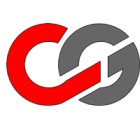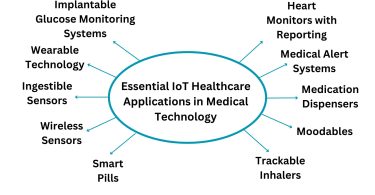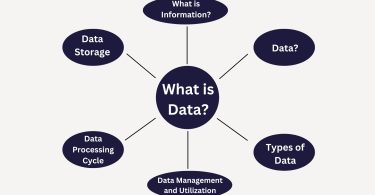Businesses are increasingly using cloud accounting solutions in current digital age in order to increase accessibility and accelerate financial procedures.Although cloud accounting has many benefits, such as improved collaboration and real-time data access, protecting financial data is still of utmost importance.This article addresses the topic of cloud accounting security and provides knowledge on methods and best practices for safeguarding your important financial data.
Exploring Cloud Accounting:
Cloud accounting uses special software stored on secure remote servers. This allows small business teams to access their accounting systems and financial data from anywhere with an internet connection and a computer. With cloud accounting, multiple people can use it; and all your data gets sent to cloud service providers, where they process it, keep it safe and then send it back. This permits and makes business tasks easier and can grow with your company.
Cloud Accounting Security Essentials:
It’s essential to understand the fundamentals of cloud accounting security before moving into preventative measures. Financial information is kept on remote servers in data centers via cloud accounting solutions. To protect your data, these systems use strong security mechanisms including encryption, firewalls and access limits. However, consumers and organizations also play an important role in keeping financial data secure; it’s not just the cloud service provider’s job.
Key Security Threats in Financial Data Protection:
- A Data Breach: Data breaches that arise from unauthorized access to private financial information can cost money and harm one’s reputation.
- Phishing Attacks: Cybercriminals frequently employ fraudulent emails to coerce victims into disclosing sensitive information or login passwords.
- Insufficient Access Control: Access permissions that are poorly maintained may provide unauthorized personnel access to important financial data.
- Insider Threats: Staff members who act carelessly or maliciously can be a serious security risk.
Protecting Your Financial Data: Best Practices.
- MFA: Multi-factor authentication places MFA in order to increase security. Users need to provide at least two different forms of verification before they can access their accounts.
- Updates to Software Frequently: Maintain application updates for your cloud accounting software and other programmes to close security holes that hackers could potentially exploit.
- Data Encryption: Data encryption should be used to prevent data from unauthorized access both during transmission and while it is being kept on the cloud server.
- Access Controls: Implement stringent permissions and access restrictions, allowing only authorized workers access to critical financial data.
- Employee Training: Educate staff members on security best practices, potential risks of phishing scams and other typical threats.
- Regular Audits: Do routine security audits and assessments to find security flaws and vulnerabilities in your cloud accounting system.
- Backup and Disaster Recovery: It’s important to have a dependable backup and disaster recovery plan in place to make sure you can get your data back if something goes wrong like a breach or data loss.
Critical Considerations in Choosing a Secure Cloud Accounting Provider:
When selecting a cloud accounting provider, consider the following factors…
- Security Features: Consider the security features that are provided by the service, such as encryption, intrusion detection and incident response mechanisms.
- Compliance: Depending on the requirements of your company, check that the provider conforms to industry standards and laws like GDPR, HIPAA, or SOC 2.
- Ownership of Data: Clarify data ownership and access rights to avoid misunderstandings and data loss in the event that the service is terminated.
- Redundancy and Reliability: Pick a provider with redundancy and replacement alternatives to reduce downtime and data loss.
- Customer Support: Evaluate the provider’s customer service and how quickly they respond to security issues.
In Conclusion:
In conclusion, in this article we emphasize the critical importance of securing financial data in the age of cloud accounting. While the benefits of accessibility and efficiency are undeniable, the need for robust security measures remains paramount. We’ve covered essential security practices, including multi-factor authentication, software updates, data encryption, access controls, employee training, audits and backup plans. Additionally, choosing a secure cloud accounting provider is a key decision, requiring careful consideration of security features, compliance, data ownership, redundancy, and customer support. By following these guidelines, businesses can navigate the digital landscape confidently, safeguarding their financial data in an increasingly connected world.



